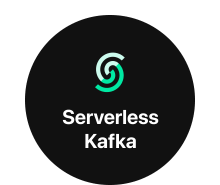Performance
- kafkajs:
Kafkajs is designed for simplicity and ease of use, which may come at the cost of some performance compared to native libraries. However, it is optimized for typical use cases and provides good performance for most applications. It uses modern JavaScript features and async/await for non-blocking operations, making it efficient for handling multiple requests.
- node-rdkafka:
Node-rdkafka offers superior performance due to its use of native C/C++ bindings. It is capable of handling high throughput and low latency scenarios, making it suitable for production-level applications that require efficient message processing. The underlying librdkafka library is highly optimized for performance, which translates to better resource utilization.
Ease of Use
- kafkajs:
Kafkajs has a straightforward API that is easy to understand and use, making it accessible for developers who are new to Kafka. Its documentation is comprehensive, providing clear examples and explanations, which helps in quick onboarding and implementation. The library follows modern JavaScript conventions, making it intuitive for JavaScript developers.
- node-rdkafka:
Node-rdkafka has a steeper learning curve due to its reliance on native bindings and more complex API. While it offers extensive features, the documentation can be less beginner-friendly, requiring a deeper understanding of Kafka concepts and C/C++ integration. Developers may need to invest more time to become proficient with this library.
Feature Set
- kafkajs:
Kafkajs provides a solid feature set that covers most common use cases, including support for producers, consumers, and admin operations like topic management. It also includes features like retries, logging, and monitoring, making it a versatile choice for many applications. However, it may lack some advanced features found in native libraries.
- node-rdkafka:
Node-rdkafka offers a rich feature set, including advanced configurations, support for transactions, and low-level access to Kafka features. It allows for fine-tuning of performance parameters and provides extensive options for managing consumer groups and offsets. This makes it a powerful choice for applications that require deep integration with Kafka.
Community and Support
- kafkajs:
Kafkajs has a growing community and is actively maintained, with frequent updates and improvements. The documentation is well-structured, and there are numerous resources available for troubleshooting and learning. The community support is robust, making it easier to find help and examples for common issues.
- node-rdkafka:
Node-rdkafka benefits from the established community around librdkafka, which is widely used in various languages. However, the Node.js-specific community may be smaller compared to Kafkajs. The library is also actively maintained, but developers may encounter challenges related to native dependencies and compatibility with different environments.
Compatibility
- kafkajs:
Kafkajs is built entirely in JavaScript and runs on Node.js, making it compatible across different platforms without the need for additional dependencies. This ensures a smoother installation process and easier deployment in various environments, including serverless architectures.
- node-rdkafka:
Node-rdkafka requires native bindings, which can introduce complications during installation, especially on different operating systems. While it provides better performance, developers must ensure that the necessary C/C++ libraries are available, which can complicate compatibility and deployment.



